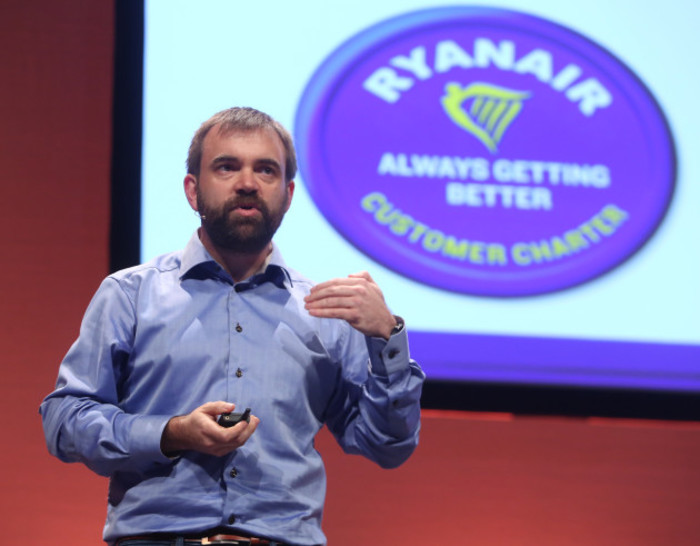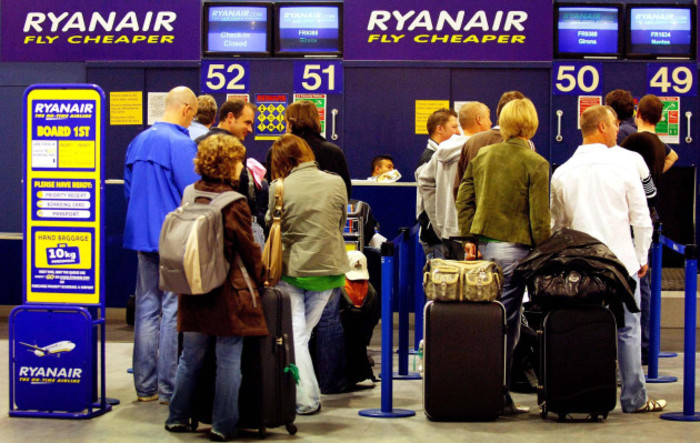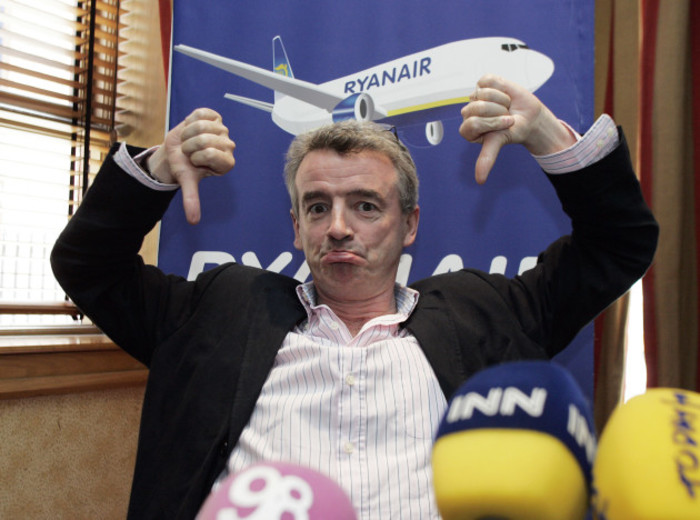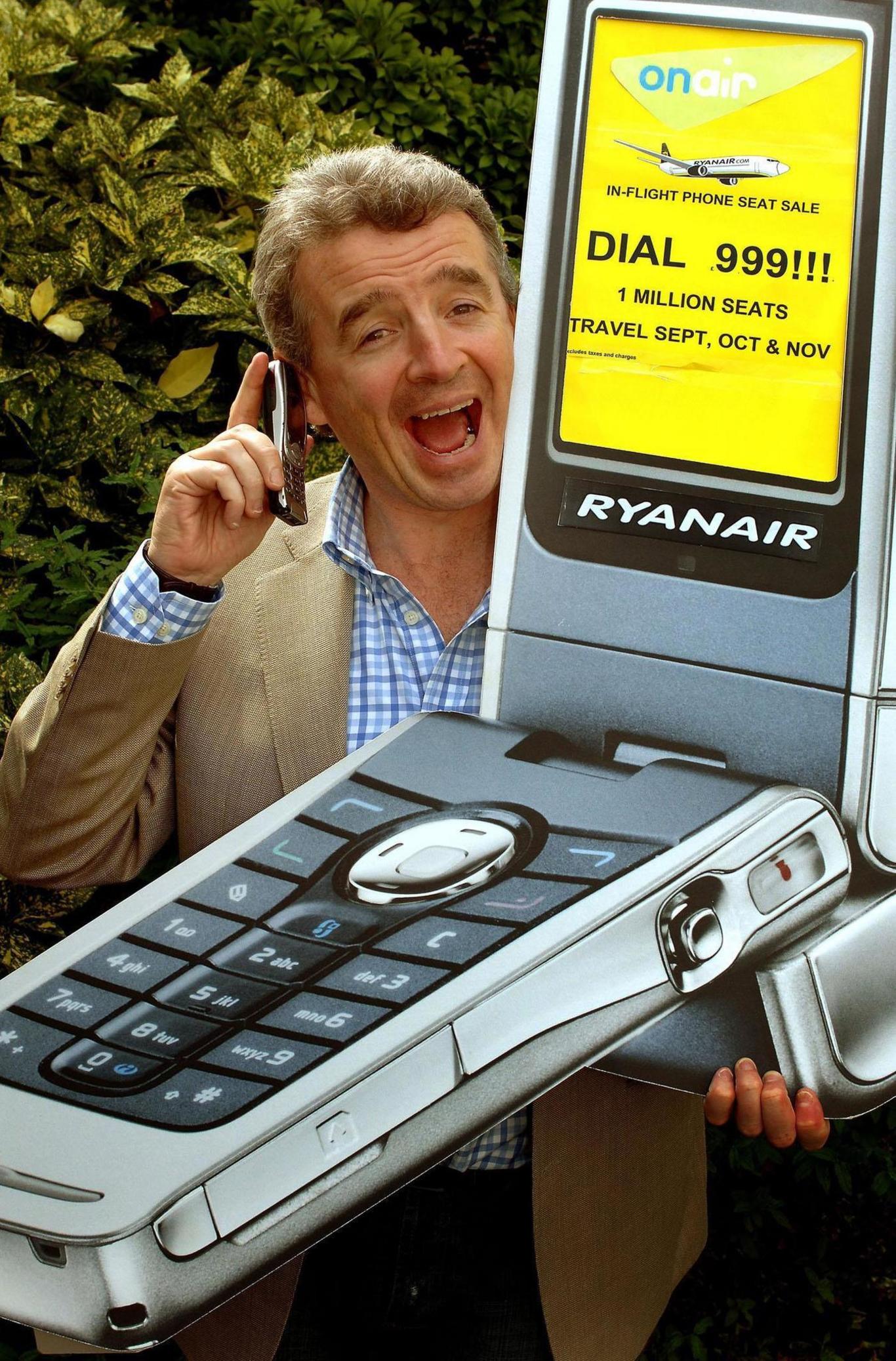Ryanair's head of technology thinks Big Data is 'wank'
John Hurley says it’s too confusing and expensive – but small data sets are like ‘crack cocaine’.
DEPENDING ON WHO you listen to, Big Data could save the world or bore everyone into a collective buzzword-inspired death. Ryanair tends to lean towards the latter.
The term covers an emerging discipline in data analytics, billed as the next big thing in many industries, that involves making sense of reams of information from multiple sources.
One high-profile advocate is Netflix, which has used it to help select the best directors and actors for its original shows, but Ryanair’s chief technology officer, John Hurley, apparently prefers the less-is-more approach.
“Do not do Big Data, it is wank,” he told an audience at Dublin BIC’s FutureScope conference yesterday.
“It’s confusing, expensive and you can’t store it. Start with small data. Do small projects, prove to the business the value of small data.
“Get them hooked on it. You’re dealing crack cocaine here. Get them out there and someone who does budgets will starting looking up and seeing the value.”
 Ryanair chief technology officer John Hurley
Ryanair chief technology officer John Hurley
Hurley, whose team includes 200 tech specialists in the newly formed Ryanair Labs, added that in the last three months alone, ‘small data’ projects have saved the company €20 million at the bottom line.
“Nothing grandiose, nothing special. The key principles with data are if it’s not making you money or improving your efficiency, don’t do it.
“Stop wasting your time, stop naval gazing. Big businesses want to save money, improve efficiency and make money. Nothing else.”

Customer focus
During a wide-ranging keynote address, Hurley also detailed the long and chequered history the budget airline had with its digital offering.
He said the company started off very innovative when it paid two teenagers to create the Ryanair website 16 years ago, but after that it fell into a more than decade-long technology slumber.
“Ryanair was totally focused on cost and in a low-cost environment you simply don’t spend money. This meant anybody with any good ideas, no matter what they were, needed to keep them away.
“Ryanair’s business model (was) don’t spend on IT (even though) you launched the e-commerce revolution. Don’t spend, everything’s going great.
“It didn’t work and in 2014 Ryanair started to notice that people were willing to spend €20 to €30 extra to travel with Aer Lingus. So we listened and found although we were useful, we had to be more likeable.”
Hurley added that the company was back on the right track over the past 18 months, a period which included the launch of a new website.
“We had been taking a siesta for 14 years. We didn’t just miss the first wave (of digital), we missed the second wave and are probably in the third wave. We are now a technology company and all we want to do for customer experience moving forward is maintain the price, improve the choice and the digital experience.”
From the stage, Hurley issued an open invitation to any entrepreneur to get in touch with Ryanair if they had a novel idea to improve the company’s operations, including the reams of data gleaned from roughly 2,000 daily flights.
“I want the people who are smarter than Ryanair to come and engage with us and tell us what we can do with our platform.
“We have 40 million unique visitors every month and 116 million passengers this year. The model is very simple, it has to make money for Ryanair and the entrepreneur and be a service that the customers want.”

Data privacy
During a question-and-answer session, Hurley also weighed in on the issue of so-called ‘passenger name record’ information being shared to combat terrorist networks.
In April, a new directive was approved by the EU that will mandate airlines to hand over all passenger records for flights that enter and leave the EU. Each member state has been given two years to enforce these new regulations.
Hurley said he is wary of this new directive and questioned if it infringes on customers’ privacy.
“The data protection officer in Dublin is very good and supportive (to us) on this and is an advocate for our customer privacy.
“(The EU will use this data) to profile potential terrorists, so in theory we should all support it, but with that said it is a very slippery slope into privacy and where you’re going and what you’re doing and who has this information.”






